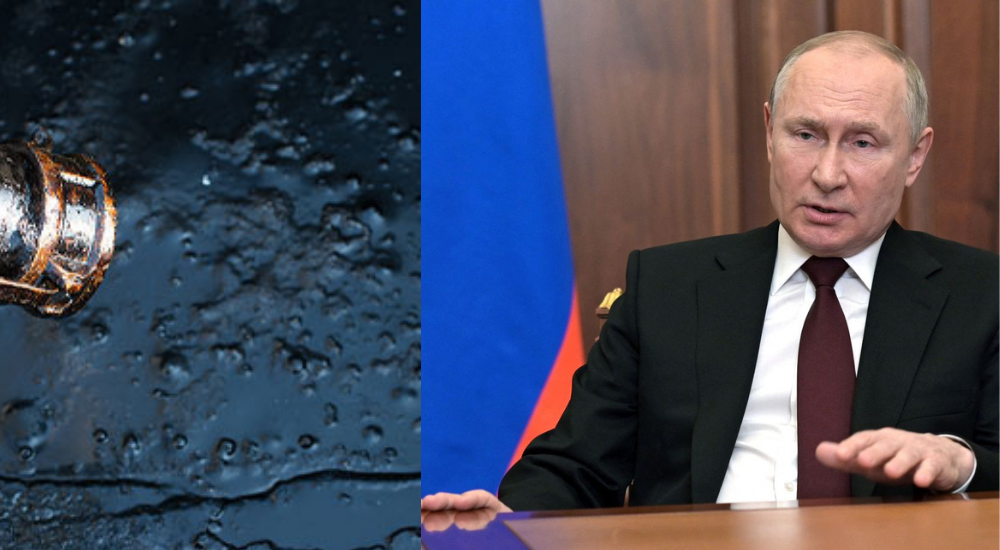Russia-Ukraine War Will Increase Fuel Subsidy Payment, Domestic Borrowing For Nigeria, Analysts Warn
The ongoing war between Russia and Ukraine has been predicted to drive up the cost of fuel subsidy payment in Nigeria as well as domestic borrowing by the Federal Government.
This is the submission of Analysts at Anchoria Asset Management Limited.
Advertisement
Anchoria Asset Management Limited is part of VFD Group.
The war, which started last month, has made the free-floating Russian ruble to lose over 30 per cent of its value against the dollar, prompting a temporary ban on the sale of Russian assets.
Russia’s Central Bank has cut its reserves’ exposure to dollar-denominated assets by half since 2014 with the Euro and Yuan being preferred alternatives.
To halt Russia’s invasion of Ukraine, a stream of sanctions from the West have been placed on Russia.
Advertisement
Russian banks have been removed from the SWIFT payment messaging system while Russia’s Central Bank’s reserves estimated at $630bn has been frozen
The recent ban placed on Russian energy exports by the United States, difficulty in financing oil transactions, as well as disruptions in Russian oil exports have caused over 30 per cent spike in oil prices to $130.
The Energy Intelligence estimates that Russian oil exports have already dropped by 2.5 million barrels per day or one-third of its total exports.
With higher crude oil price which is above the budget benchmark of $62 per barrel, there have been fears that Nigeria may not be able to maximize the benefits because of rising fuel subsidy burden.
As of 2021 when crude oil price averaged $62 per barrel, the federal government spent about N1.2trn subsidising petrol.
Advertisement
With oil price hitting its highest level in over eight years, there are fears in governnment circles that the country may surpass the N2.55trn fuel subsidy budget for this year.
But the Analysts at Anchoria Asset Management Limited said in their Report which was obtained by THE WHISTLER, that the since energy costs account for 35 per cent of production costs, the increase in energy prices will result in higher cost of production and ultimately push inflationary pressures up.
The Report also stated that Nigeria will experience elevated commodity prices as Ukraine and Russia both account for 30 per cent of wheat supply globally.
It added that the present dispute will restrict wheat supplies and put upward pressure on wheat prices.
Wheat is a primary input used in making bread, noodles, and pasta, all of which are staples imported into Nigeria.
The Report said, “Gas prices are also projected to climb due to supply concerns, even though prices have grown by 84 per cent year on year. A spillover effect from this will be a further increase in electricity tariffs.
Advertisement
“Higher energy prices mean increased subsidy payments, and consequently an increase in planned government borrowings. This places further pressure on Nigeria’s debt servicing ability.
“As of Q3 2021, Nigeria’s debt service to revenue ratio was estimated at 80 per cent. This implies that for every N10 earned by the economy, N8 is required to service the country’s debt.”
On the implication of the crisis on Nigeria’s Capital Market, the Analysts in their Report stated that given the slowdown in foreign investor participation since 2020, they believe the war will have less of an impact on the Nigerian capital market.
“The Nigerian market has since come off as less appealing to foreign investors due to its stringent FX policies, capital control measures, and relatively low level of yields not enough to compensate for higher risk.
“We expect the direction of yields will be influenced by a rise in government borrowings and weaker liquidity levels expected in the second half of the year.
“Given the expected rise in rates, the strategy is to overweight bonds with shorter durations, and underweight bonds with longer durations.
“We are bullish on defensive sectors, particularly those in the telecommunications and financial services sectors. Investors can take position in fundamentally sound stocks with double-digit dividend yields,” the Report added.



